InfluConnect is an Influencer Marketing Platform designed to connect sponsors with influencers. It enables user authentication, campaign management, influencer search, ad requests, and platform administration through an admin dashboard.
Project Achievement: Scored a perfect 100/100 in the college evaluation!
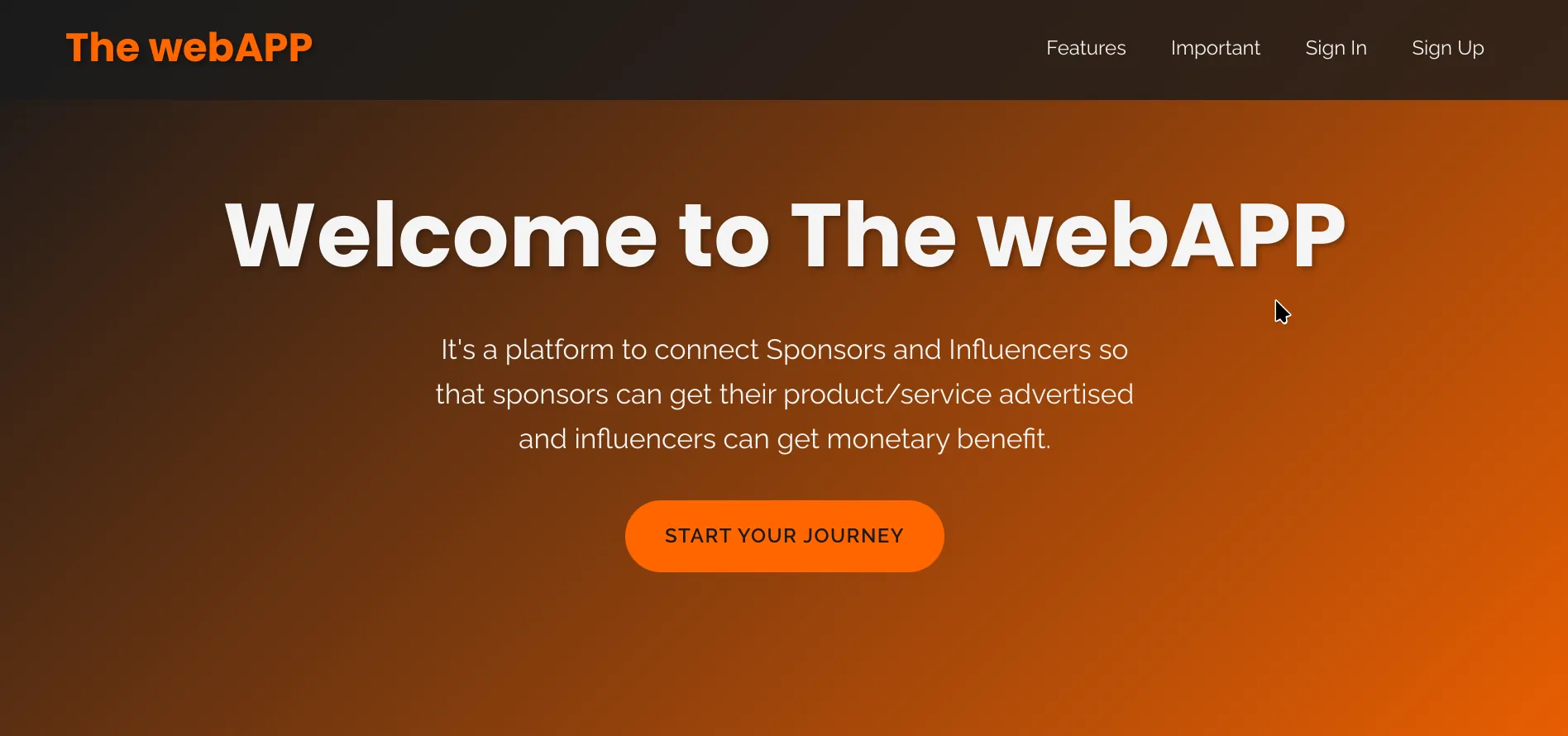
Key Features
-
User Authentication: Secure login and role-based access (admin, sponsor, influencer).
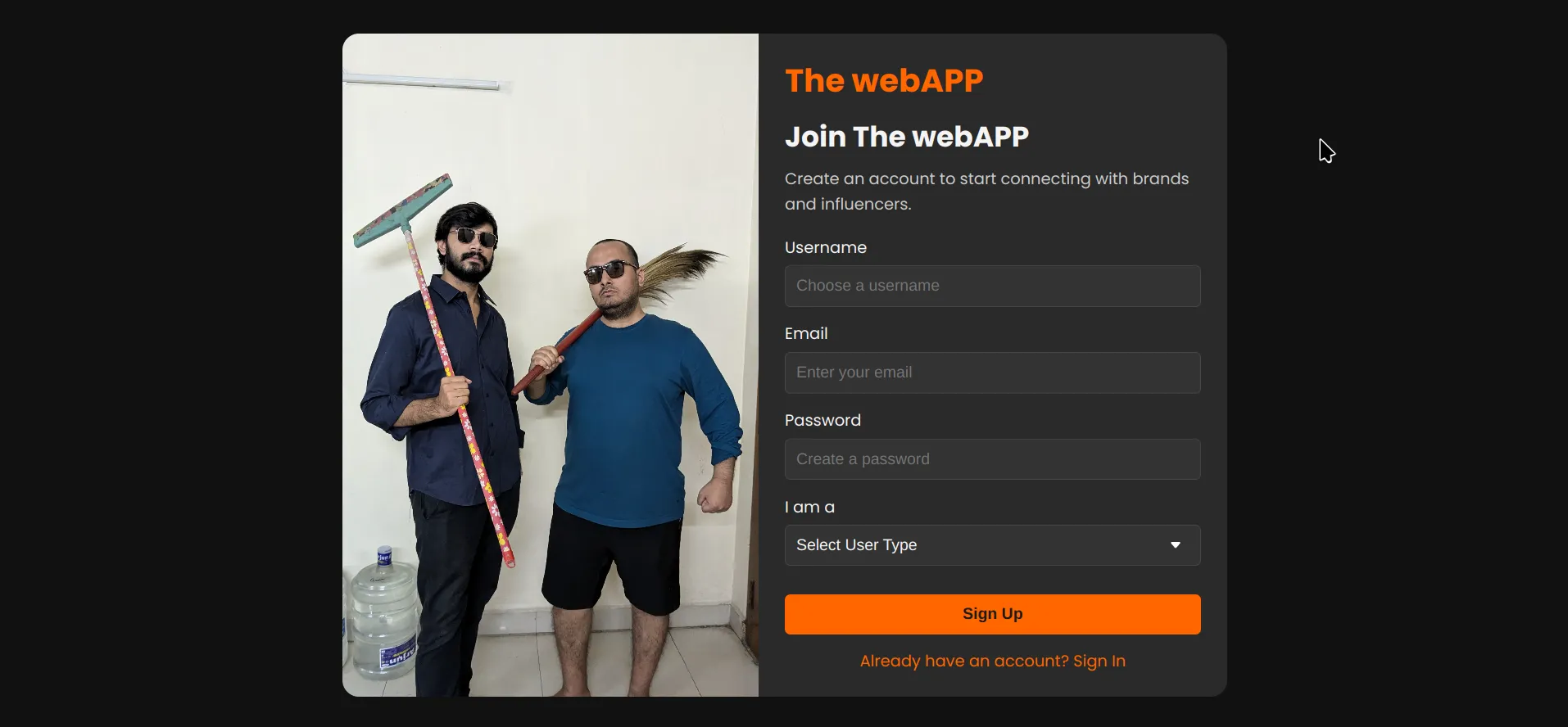
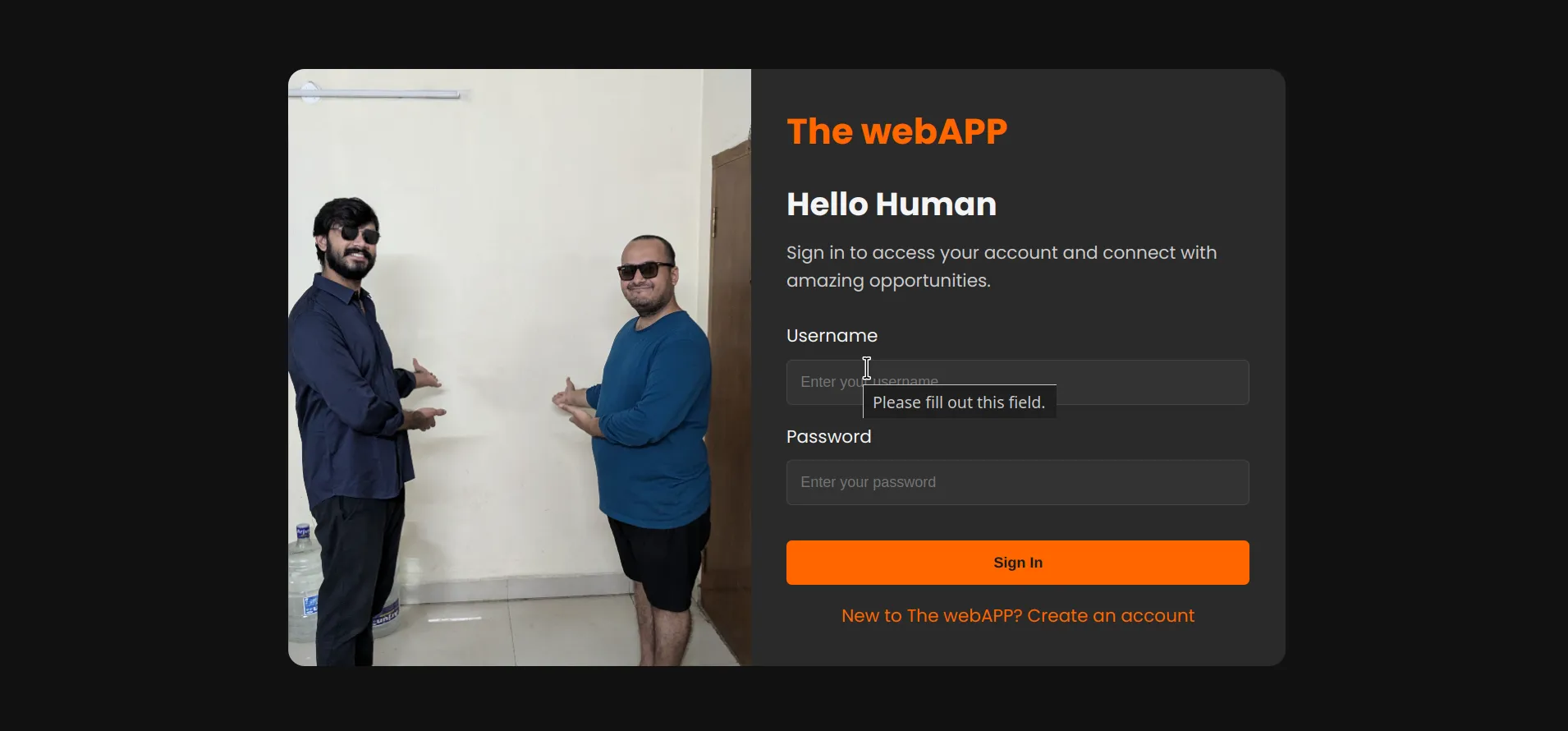
-
Campaign Management: Sponsors can create, manage, and track campaigns.
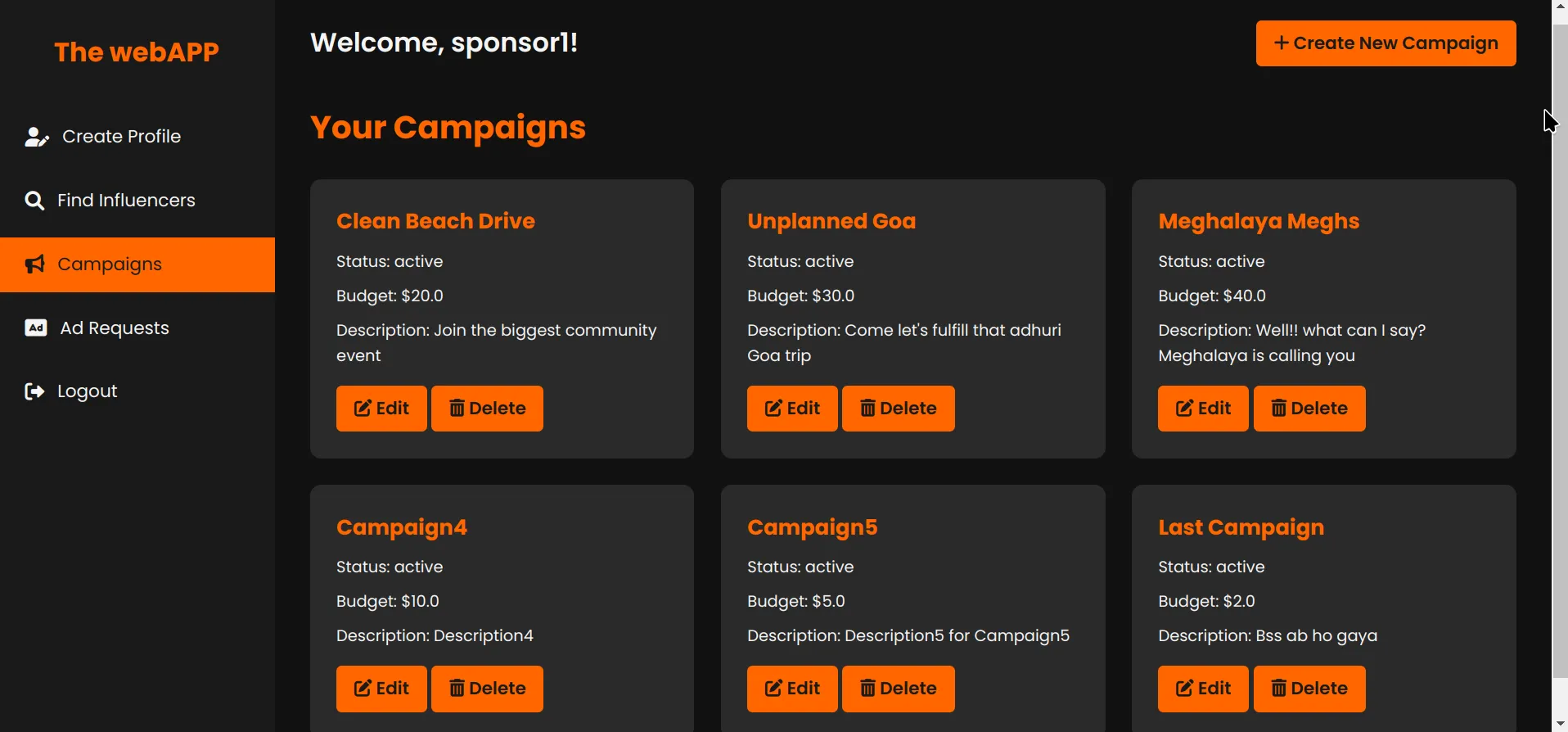
-
Influencer Search: Sponsors can search for influencers based on niche, category, and reach.
-
Ad Requests: Influencers can respond to sponsor ad requests with acceptance, rejection, or negotiation.
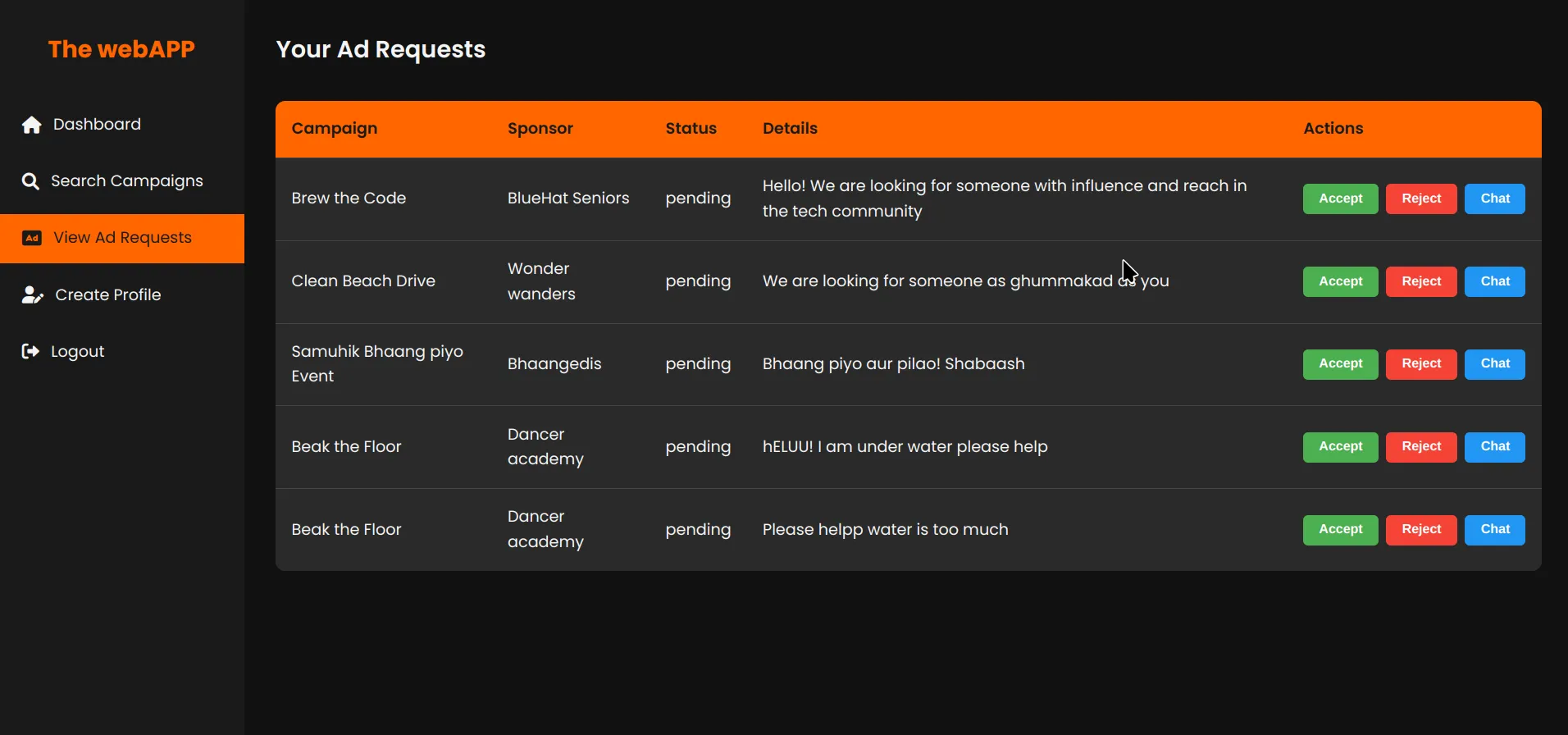
-
Admin Dashboard: For managing the platform, including user roles and flagged accounts.
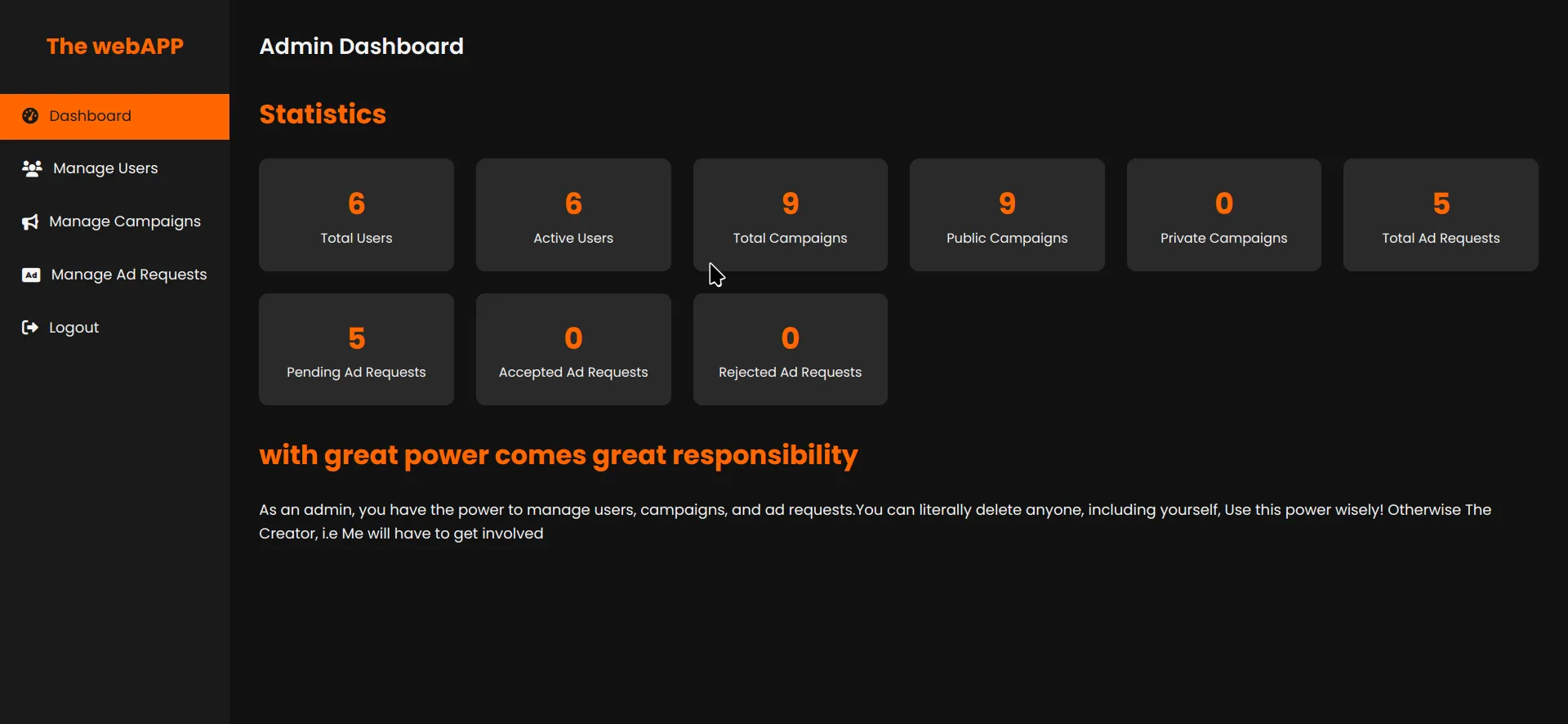
Tech Stack
Frontend:
- HTML: Structuring web pages.
- CSS: Styling for responsive and user-friendly design.
Backend:
- Python: Core backend logic.
- Flask: Web framework for routing and handling requests.
- Flask-SQLAlchemy: ORM for database interactions.
- Jinja2: Dynamic HTML rendering.
- SQLite: Database engine for storing user, sponsor, influencer, and campaign data.
Database Schema Highlights
- User Table: Stores user credentials, roles, and active status.
- Sponsor Table: Manages sponsor profiles, budgets, and industries.
- Influencer Table: Tracks influencer categories, niche, reach, and activity status.
- Campaign Table: Stores campaign details like title, description, budget, and status.
- AdRequest Table: Handles ad requests between sponsors and influencers, including negotiation logs.
Architecture
The app follows the MVC (Model-View-Controller) architecture:
- Models: Database tables and relationships in
models.py. - Views: HTML templates in the
templatesfolder, styled with CSS. - Controllers: Routes and logic managed in
app.py, processing user requests.
Demo
I couldn’t include all the screenshots. Check out the video demonstration here: MAD1 Demo.